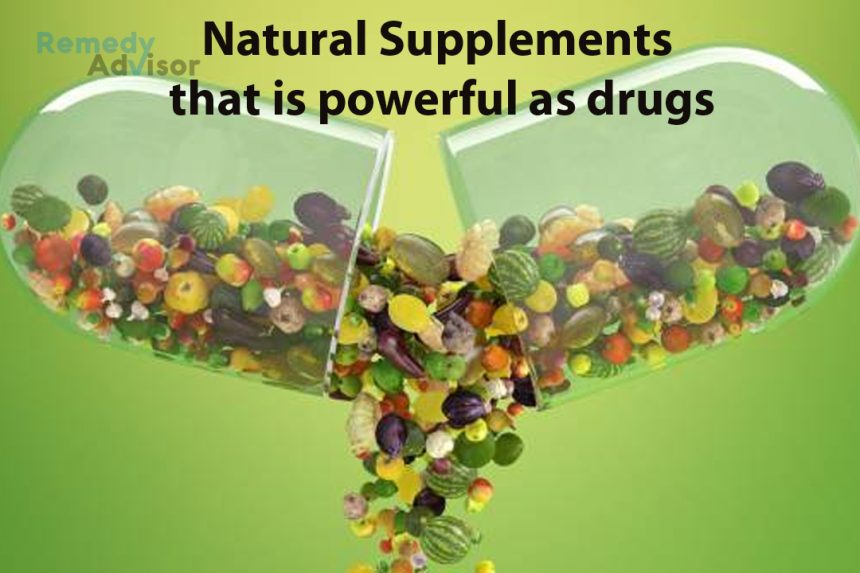Conventional medications can be quite effective at controlling symptoms but they can also cause nasty side effects. Fortunately, there are natural alternatives to many of the most common prescription and over-the-counter (OTC) drugs. Available in health-food stores, these herbs, plant extracts, vitamins, etc., are often as effective as the medications they replace and less likely to cause side effects.
If the idea of using natural remedies seems “flaky” to you, it’s probably because mainstream doctors in the US tend to be strongly biased against them.
This bias is not shared by doctors elsewhere. In Germany, for example, the herb St. John’s wort (Hypericum perforatum) is prescribed for depression eight times more frequently than synthetic antidepressants like fluoxetine (Prozac).
Here’s a list of drugs you may be better off without, along with the natural alternatives with which to replace them.
Important: Choose products with labels specifying the concentration of active ingredients and use them only under medical supervision.
Headache remedies
It’s no secret that people with recurrent headaches tend to use lots of aspirin, ibuprofen and acetaminophen. Few people realize, however, that these OTC painkillers cause “rebound” headaches in 70% of the people who use them. That is, painkillers taken to stop pain wind up causing more pain
Alternative I: Magnesium
Many tension type and migraine headaches stem from a slight deficiency of this mineral. If your headaches do, magnesium oxide supplements should bring relief. Take 600 milligrams (mg) per day, divided into three 200-mg doses.
Alternative II: Feverfew
This herb is particularly effective against migraines. Take 80 mg of an extract containing at least 0.2% of partbenolide, the active ingredient in feverfew. No side effects have been reported.
Acid blockers and antacids
Acid blockers like Zantac, Tagamet and Axid fight stomach upset and ulcers by blocking the release of stomach acid. But in doing so, they disrupt the digestive process. This can lead to nutritional deficiencies.
Acid blockers have also been linked to liver and kidney problems, yeast infection (candidiasis) and breast enlargement in men (gynecomastia).
Antacids like Turns and Maalox can cause a rebound effect, in which the stomach generates more stomach acid as the antacids wear off. Many antacids contain aluminum, which some suspect may be a cause of Parkinson’s and Alzheimer’s disease.
Alternative: Deglycyrrhizinated licorice (DGL)
It promotes synthesis of the natural substances that line the intestinal tract, protecting it against acid irritation. In studies DGL has proven more effective than acid blockers and Maalox.
Typical dosage: Two 380-mg tablets, taken 20 minutes before meals.
Caution: If you have persistent stomach pain especially pain that grows worse on an empty stomach see a doctor. You may have a peptic ulcer.
Antihistamines
Benadryl and other OTC antihistamines are effective at relieving nasal congestion, runny nose and other cold and hay fever symptoms. Some can cause dry mouth and drowsiness.
Alternative: Quercetin
This derivative of fruits and flowers keeps the body from releasing histamine and other compounds that trigger cold and hay fever symptoms.
Typical dosage: 200 mg, taken five minutes before meals
Sleeping pills
As many people suffering from insomnia have learned, sleeping pills can impair mental and physical function and make it hard to “get going” in the morning.
Alternative: Valerian.
This herbal sleeping aid works better than sleeping pills, without causing any morning “hangover.”
Typical dosage: 150 mg, taken 45 minutes before bedtime. Look for a product that contains 0.8% valerenic acid, valerian’s active ingredient.
Antidepressants
All prescription antidepressants cause side effects. Almost half of all people who take fluoxetine or sertraline (Zoloft), for example, notice a decreased sex drive.
Alternative: St. John’s wort
Double-blind studies have proven this herb to be more effective than prescription antidepressants. St. John’s wort appears to be safe, though it can cause sun sensitivity and stomach upset.
Typical dosage: 300 mg, three times a day. Buy a product containing 0.3% of the herb’s active ingredient, hypericin.
Finasteride (proscar)
Enlarged prostate (also known as benign prostatic hyperplasia or BPH) affects 50% of men over age 60. Symptoms include frequent urination and a weak or uneven urine stream.
Doctors often treat BPH with finasteride. This drug blocks synthesis of testosterone, the hormone that fuels the growth of prostate tissue. But finasteride can take up to six months to relieve symptoms. It can also cause depression and impotence.
Alternative: Saw palmetto
This herb, widely used in Europe, has proven effective against BPH in many studies. It causes no major side effects.
Typical dosage: 160 mg, twice a day. Expect improvement within four weeks. Buy a fat-soluble extract that contains 85% to 95% fatty acids and sterols.
Caution: Any man who thinks he has BPH should have a full physical. Urinary difficulties can be symptomatic of prostate cancer.







